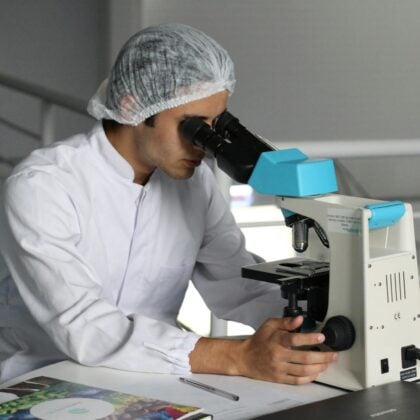
The test genetic (test ofDNA) for lactose intolerance is a biological test that looks for the genotype of a person with suspected lactose intolerance. Lactose intolerance is the inability of the intestinal cells to break down lactose (milk sugar) into simple sugars (glucose and galactose) following a deficit in lactase.
It is done by taking a buccal sample made of salivary epithelial cells on the inner side of the cheeks, this sampling is not painfulA swab is used to remove the cell smear. The sample is then tested for genotype using a biological gene amplification technique called : chain reaction by polymerase " ACP "or in English : polymerase chain reaction " PCR ". It should be noted that before taking this test, the person must give free and informed consent to their doctor.
Genetic testing, in which cases?
The genetic test is only used in certain casesIt only allows the detection of primary intolerance of origin genetic and it is of no interest if the cause is secondary and transient (in case of gastroenteritis for example or inflammatory bowel disease). According to the studies, primary intolerance is frequent in adults, whereas secondary intolerance is often encountered in children since they have more gastroenteritis than adults.
Lactose intolerance: other tests
Several tests can be used to diagnose lactose intolerance, the eviction test which consists of exclude foods containing lactose for 3 to 5 daysThe improvement in symptoms supports a positive diagnosis of lactose intolerance.
The breathing test at hydrogen remains the most practiced and reliableThe test is non-invasive and its principle is simple: the increase in the hydrogen level measured on exhalation after ingestion of a quantity of lactose confirms the diagnosis in the majority of cases.

Hello, I'm Vincent
Like you, I'm lactose intolerantI know exactly what you're going through and the difficulties you encounter on a daily basis. For over 10 years, I've been helping our customers to use our dietary supplements and giving advice and tips on how to improve their digestive comfort. I'm also a keen cook and gourmet, so you'll find my favourite recipes for a lactose-free diet in this blog.
Lactose intolerance is not inevitable! With LACTOLERANCE you can digest with complete peace of mind






